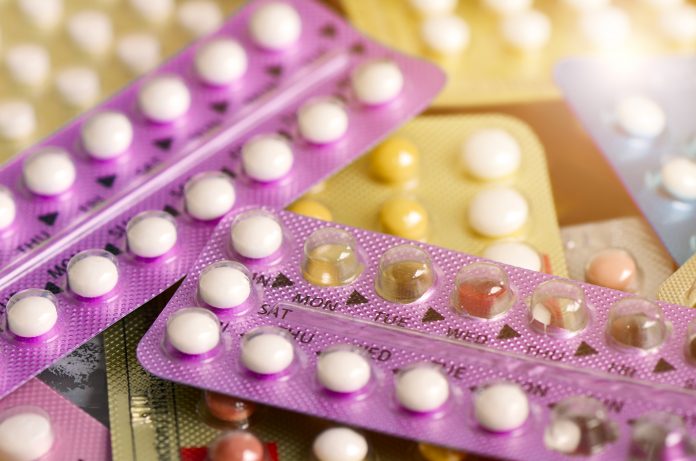Dr Deborah Lee, Dr Fox Online Pharmacy, clarifies everything you need to know about using and accessing contraception during the COVID-19 pandemic
Are you confused about your contraception?
An IPSOS Mori poll conducted in September 2020 found that around 24% of women who needed contraceptive care felt they had been left in the dark.
- 46% of women thought they could get contraception from their GP.
- 48% thought they could get contraception from a pharmacy.
- 35% who tried to access a Sexual Health clinic for help thought the service had become worse.
Here’s the good news! GPs and Sexual Health Clinics are continuing to provide contraception. You should still be able to obtain contraception from both venues, even if this means a telephone consultation and collecting your pills from a pharmacy.
You should still contact your local sexual health clinic immediately if you need emergency contraception and would like an emergency IUD insertion.
Your contraception remains very important during the pandemic.
- Think ahead – don’t let yourself run out of pills.
- Make sure you know the date your coil or implant should be changed and follow current advice.
Take a look at these new recommendations below:
New contraception guidelines for the pandemic
The Faculty of Sexual and Reproductive Health (FSRH), which produces evidence-based guidelines on contraception for medical and nursing practitioners in the field of Contraception and Sexual Health, have issued recommendations which will help you obtain your contraception throughout this difficult period.
These are summarised below:
Contraceptive pills
If you are an existing pill user, your GP can prescribe you a 6 -12-month supply of the combined pill, the contraceptive patch (Evra) the vaginal ring (NuvaRing), or the progesterone-only pill, without necessarily checking your blood pressure (BP) every time.
However, you do still need an annual BP check. One way to facilitate this is to take your own blood pressure at home. Home blood pressure monitors are relatively inexpensive these days. You should also make sure you have an up-to-date weight and height measurement before your telephone consultation.
You may be given a 6-month supply and asked to request the next 6 months on repeat prescription because if you were to suddenly stop taking it, this would result in a large amount of wastage.
The vaginal ring can only be supplied 3-months at a time because it is stored at low temperatures in the pharmacy fridge and must be used within 4 months of being dispensed.
Injectable contraception – Depo Provera
Women who need to attend for 3-monthly injections of Depo Provera should consider switching to the progesterone-only pill – as attending for injections through lockdown may be difficult or just not possible. However, the injection can be given up to 14 weeks without the need for a pregnancy test.
Any women using Sayana Press – the self-administered injectable – may now obtain a 12-month supply. If you want to inject Sayana Press yourself at home, you can be taught online how to do it. Ask your local sexual health clinic.
Copper IUD’s
Copper IUD’s give excellent contraception for the duration of the product license, but this varies depending on which device is being used, between 5-10 years. The Faculty state that IUD’s should not be relied on for contraception beyond the time stated in the product license. When this date has passed, the coil can be left in situ for the time being, but another method of contraception such as the progesterone-only pill should be used for contraception instead.
You may not know which type of IUD you had inserted, but it will say on the card you were given at the time of insertion. The most common IUD used in the UK is the Copper-T 380, which lasts for 10 years. A Nova-T380 lasts for 5 years. If in doubt, check with your GP or the clinic where it was inserted.
The advice that a copper IUD inserted in a woman aged over 40, over can stay in place until menopause, has not changed.
- Intrauterine systems – Mirena, Levosert, Kyleena, and Jaydess
- Mirena and Levosert – During the pandemic, the Faculty has stipulated that the intrauterine systems (IUS) – Mirena and Levosert – can be left for an extra year. This means whereas in the past these devices needed to be changed after 5-years, this can now be extended to 6-years. This is because there is still plenty of hormone in the device when it is removed at 5-years. The failure rate in the 6th year of use is likely to be extremely low. In studies where the device has been left for 6, or even 7 years, there have been no, or only very small numbers of pregnancies.
If this very small risk is not acceptable for you, then you could use an additional method such as the progesterone-only pill until such time as the IUS can be changed.
Using the Mirena or Levosert as endometrial protection as part of an HRT regime?
If you are using Mirena or Levosert as the progesterone component of your HRT regime, you must still have your Mirena IUS changed after 5-years. Speak to your GP or local Sexual Health Clinic.
- Recommendations for Jaydess and Kyleena
- Jaydess – This is a 3-yearly intrauterine system, which should be changed after 3-years. If this is not possible, alternative contraception such as the progesterone-only pill should be taken from the date of expiry until a new device can be inserted.
- Kyleena – This is a 5-yearly intrauterine system, which should be changed after 5-years. If this is not possible, alternative contraception such as the progesterone-only pill should be taken from the date of expiry until a new device can be inserted.
Nexplanon – the contraceptive implant
The Faculty have stated that Nexplanon can be left in place during the pandemic for 4-years – instead of 3-years, as was previously recommended.
This is because there is plenty of hormone left in the device after removal at 3-years and the failure rate is likely to be extremely low. In studies where the device has been left for 4 years, there have been no, or only very small numbers of pregnancies. If this very small risk is not acceptable for you, then you could use an additional method such as the progesterone-only pill until such time as the implant can be changed.
Long-Acting Reversible (LARC) contraception
LARC contraception – IUD/IUS, implants, and injectables – is increasingly popular. Once fitted/inserted they can be left alone and provide very reliable contraception without the user having to do anything – so-called ‘fit and forget’ methods of contraception.
You can still arrange an appointment at the GP surgery or the Sexual Health clinic for IUD/IUS and implant procedures.
If you are a new LARC user, take note that it’s very important to use reliable contraception up until the time of your insertion procedure, so that there is no risk of pregnancy when you attend the clinic.
If you are having your LARC device changed, the clinic will advise you what you need to do in the run-up to the appointment, depending on which device is in situ and how long it has been there.
General advice
Do not attend the surgery/ sexual health clinic if you are diagnosed with COVID, have COVID symptoms, or are having to self-isolate in the 10 days before your clinic appointment. Please remember the importance of hand hygiene and following current advice about social distancing. You will be assessed for COVID on arrival at the clinic. The staff conducting the procedure and any others present, such as a chaperone, may well be wearing PPE equipment.
How to access contraception
- You can access your GP about contraception by making an appointment online, or by phoning the surgery if it is urgent.
- Find your local Sexual Health clinic here.
- You can also purchase contraceptive pills, and emergency contraception, from online pharmacies.
For more information
- Specialist Pharmacy Service – Summary of COVID-19 medicines guidance – Family Planning.











